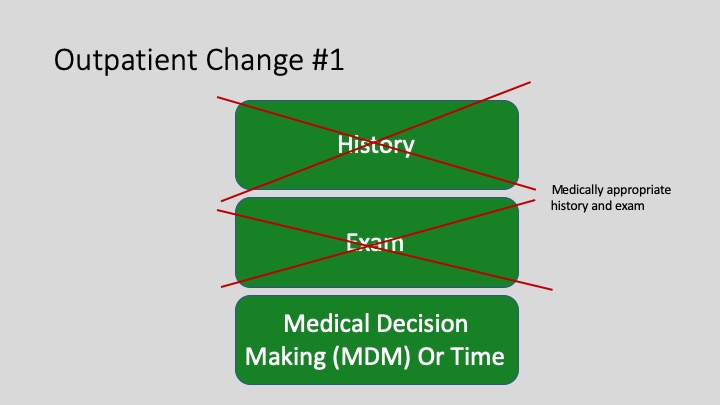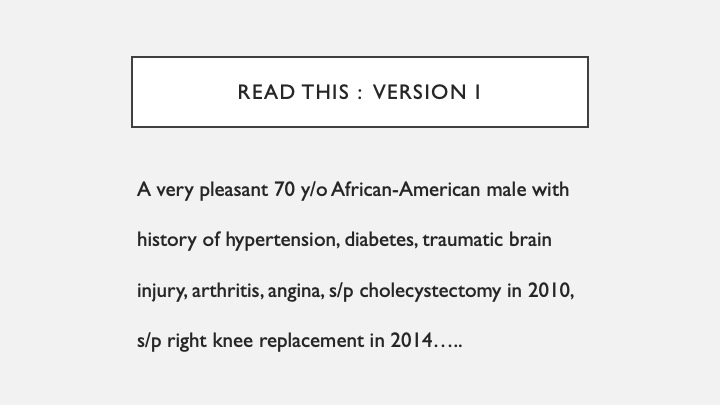14 pieces of advice for a New Attending
OR
What I wish I knew when I first became an attending
#medtwitter
#neurotwitter
#academicphysicianlife
1/
OR
What I wish I knew when I first became an attending
#medtwitter
#neurotwitter
#academicphysicianlife
1/
1. Enjoy the independence
No more staffing with the attending.
A liberating feeling.
Enjoy it because the rest is on you.
2/
No more staffing with the attending.
A liberating feeling.
Enjoy it because the rest is on you.
2/
2. It’s a steep learning curve
I learnt more in my first 6 months as an attending than I did in my 6 years of training.
When the buck stops with you, you cannot stop learning.
3/
I learnt more in my first 6 months as an attending than I did in my 6 years of training.
When the buck stops with you, you cannot stop learning.
3/
3. Prepare in advance
In a busy outpatient practice or inpatient practice, the best thing to prepare for tomorrow is to review today.
Review as much information as possible for each patient in EMR.
Remember that even follow-up patients are new to you.
4/
In a busy outpatient practice or inpatient practice, the best thing to prepare for tomorrow is to review today.
Review as much information as possible for each patient in EMR.
Remember that even follow-up patients are new to you.
4/
4. Uptodate is your savior
Before going into the patient's room, read up on their condition.
It will build your confidence and the patient's confidence in you.
5/
Before going into the patient's room, read up on their condition.
It will build your confidence and the patient's confidence in you.
5/
5. Ask for customized patient slots
You are new to this. Hopefully, your employer recognizes this.
Request an hour for all patients to begin with if possible as all patients are new.
As you become experienced, change the duration for new and follow-up encounters.
6/
You are new to this. Hopefully, your employer recognizes this.
Request an hour for all patients to begin with if possible as all patients are new.
As you become experienced, change the duration for new and follow-up encounters.
6/
6. Instinct first
Remember, you are the decision maker.
Go with your instinct when you are straddling the fence as long as it does not lead to patient harm.
Gradually, your experience will transform into instinct and you will learn to trust it.
7/
Remember, you are the decision maker.
Go with your instinct when you are straddling the fence as long as it does not lead to patient harm.
Gradually, your experience will transform into instinct and you will learn to trust it.
7/
7. Ask for help
You cannot be expected to know everything.
Talk to your more experienced colleagues.
Reach out to your mentors from training. They will be happy to help you.
8/
You cannot be expected to know everything.
Talk to your more experienced colleagues.
Reach out to your mentors from training. They will be happy to help you.
8/
8. Get a second opinion right then and there
Bring your colleague into the room to get a second opinion about that heart murmur or that tremor or the weird test results.
Patients will know that you want the best for them.
9/
Bring your colleague into the room to get a second opinion about that heart murmur or that tremor or the weird test results.
Patients will know that you want the best for them.
9/
9. Create templates
Before you start, take some time to create templates and shortcuts in the new EMR.
This will help you spend more time with the patient and less on the notes.
10/
Before you start, take some time to create templates and shortcuts in the new EMR.
This will help you spend more time with the patient and less on the notes.
10/
10. Reply with phonecalls
To establish a trusting relationship with patients, pick up the phone and let them know about that test result they are nervous about or the drug side effect they are annoyed about
Patients will appreciate it and will improve medication adherence.
11/
To establish a trusting relationship with patients, pick up the phone and let them know about that test result they are nervous about or the drug side effect they are annoyed about
Patients will appreciate it and will improve medication adherence.
11/
11. Never take notes home (I know, not possible for some specialties)
The best thing I did was NEVER EVER leave the office without completing my daily notes.
When I am off work, I am OFF WORK.
Your staff will also appreciate it for billing purposes & for ordering tests.
12/
The best thing I did was NEVER EVER leave the office without completing my daily notes.
When I am off work, I am OFF WORK.
Your staff will also appreciate it for billing purposes & for ordering tests.
12/
12. Make the billing and coding person your best friend
Set up an initial meeting with your billing person.
Reach out to them frequently to get feedback on your notes and billing.
An initial small effort to learn this process will pay huge dividends later
13/
Set up an initial meeting with your billing person.
Reach out to them frequently to get feedback on your notes and billing.
An initial small effort to learn this process will pay huge dividends later
13/
13. It's ok to say "I don't know"
But make sure to follow up with the patient on what you learned.
14/
But make sure to follow up with the patient on what you learned.
14/
14. Find a second interest
Not a beginner attending tip, but in a few months to years, you will feel a vacuum.
Is this it? All the hard work for this?
What will sustain you is a second interest - teaching, research, admin, sidegigs, creative outlets (like Twitter)
15/
Not a beginner attending tip, but in a few months to years, you will feel a vacuum.
Is this it? All the hard work for this?
What will sustain you is a second interest - teaching, research, admin, sidegigs, creative outlets (like Twitter)
15/
Summary:
1. Enjoy the independence
2. It's a steep learning curve
3. Prepare in advance
4. Uptodate is your savior
5. Ask for customized patient slots
6. Instinct first
7. Ask for help
1. Enjoy the independence
2. It's a steep learning curve
3. Prepare in advance
4. Uptodate is your savior
5. Ask for customized patient slots
6. Instinct first
7. Ask for help
Summary:
8. Get a second opinion right then and there
9. Create templates
10. Reply to phonecalls
11. Never take notes home
12. Make the billing and coding person your best friend
13. It's ok to say "I don't know"
14. Find a second interest
8. Get a second opinion right then and there
9. Create templates
10. Reply to phonecalls
11. Never take notes home
12. Make the billing and coding person your best friend
13. It's ok to say "I don't know"
14. Find a second interest
This account exists to teach and share essential physician-specific knowledge that is untaught.
If you found this thread useful:
1. Follow me @rohitmarawar for more of these
2. RT the tweet below to share this thread with your audience
If you found this thread useful:
1. Follow me @rohitmarawar for more of these
2. RT the tweet below to share this thread with your audience
• • •
Missing some Tweet in this thread? You can try to
force a refresh

















